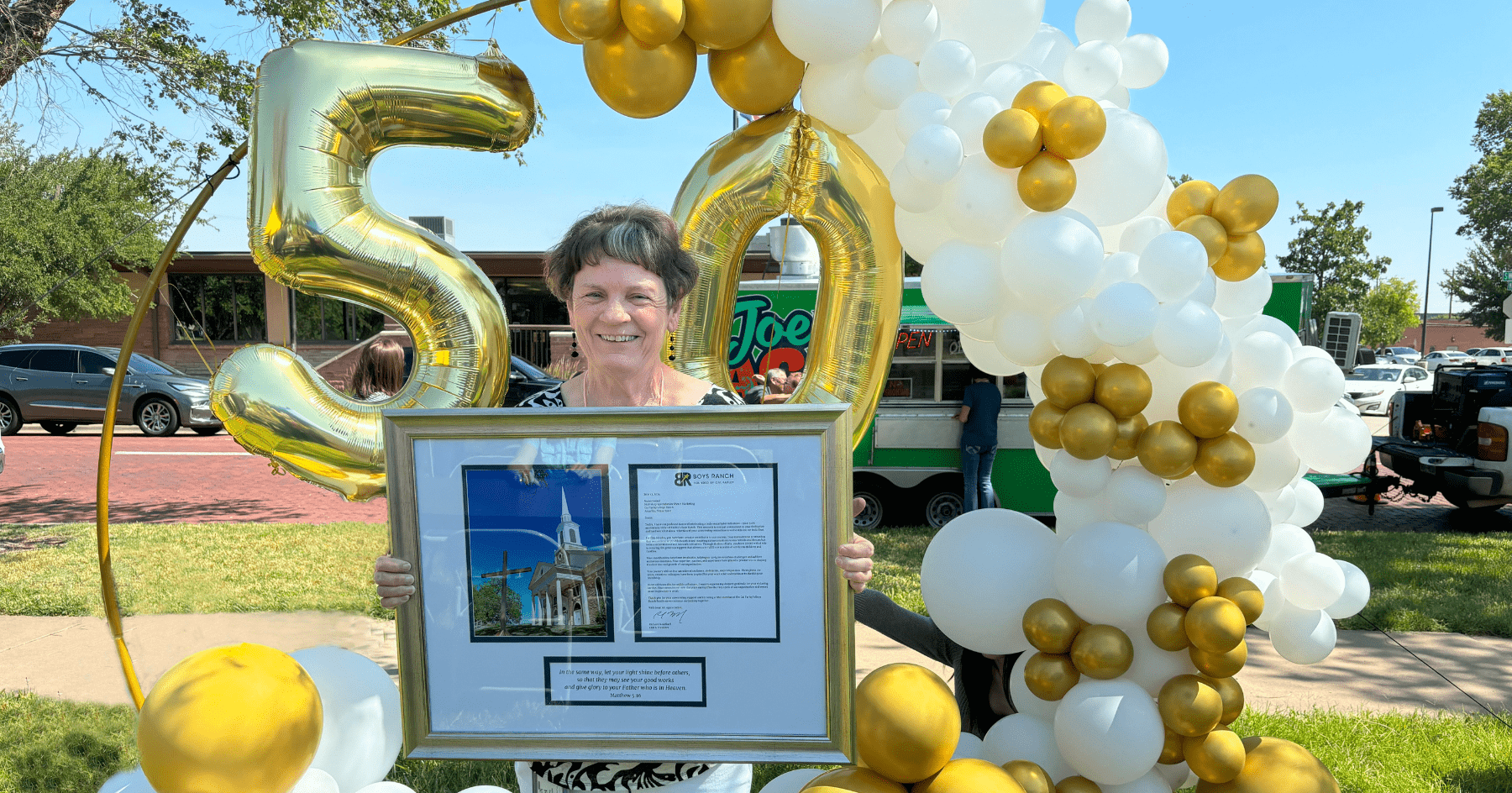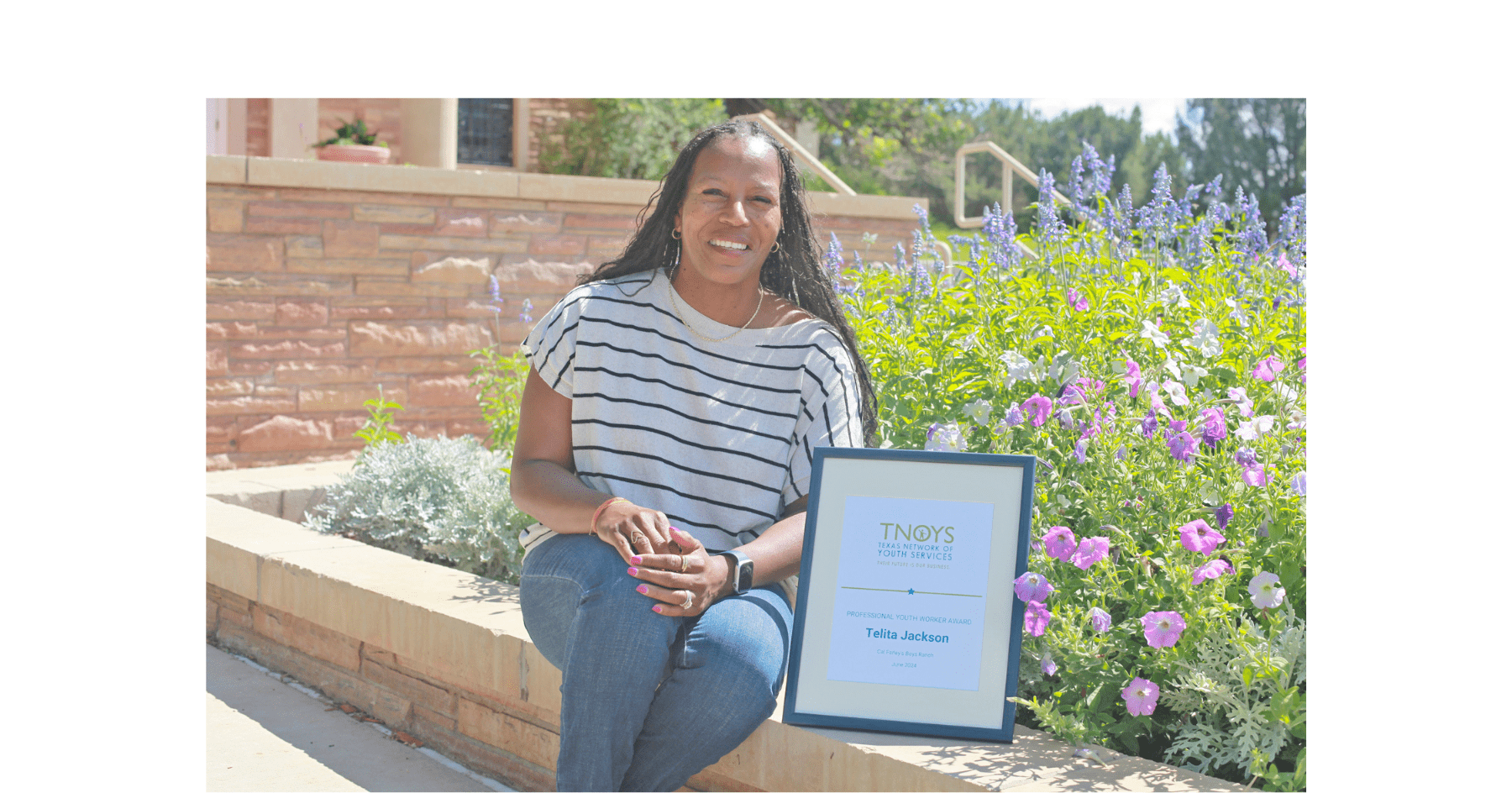FFA teaches responsibility, finance and life skills.
The animal is just the beginning. For years, students at Boys Ranch have learned responsibility, finance and life skills through FFA involvement.
This 2021-22 school year was no different.
In the fall, a junior named Blake bought a young black and white pig then spent time each day teaching the pig to trust him.
The teen brushed the Hampshire pig daily and spent time sitting in the pen with him.
It was the first time Blake touched a pig. Just a few weeks later, Blake earned the grand champion pig award at the Boys Ranch Stock Show.
Many students at Boys Ranch encounter farm animals for the first time when they buy one for an FFA project.
Blake has been in FFA since he was a freshman, learning finance, responsibility and life skills along with animal husbandry.
“This pig is my first animal,” he said. “I think I’m going to stick with it next year, too.”
Blake named his pig “Wagger” because the pig wagged his tail a lot when Blake acquired him.
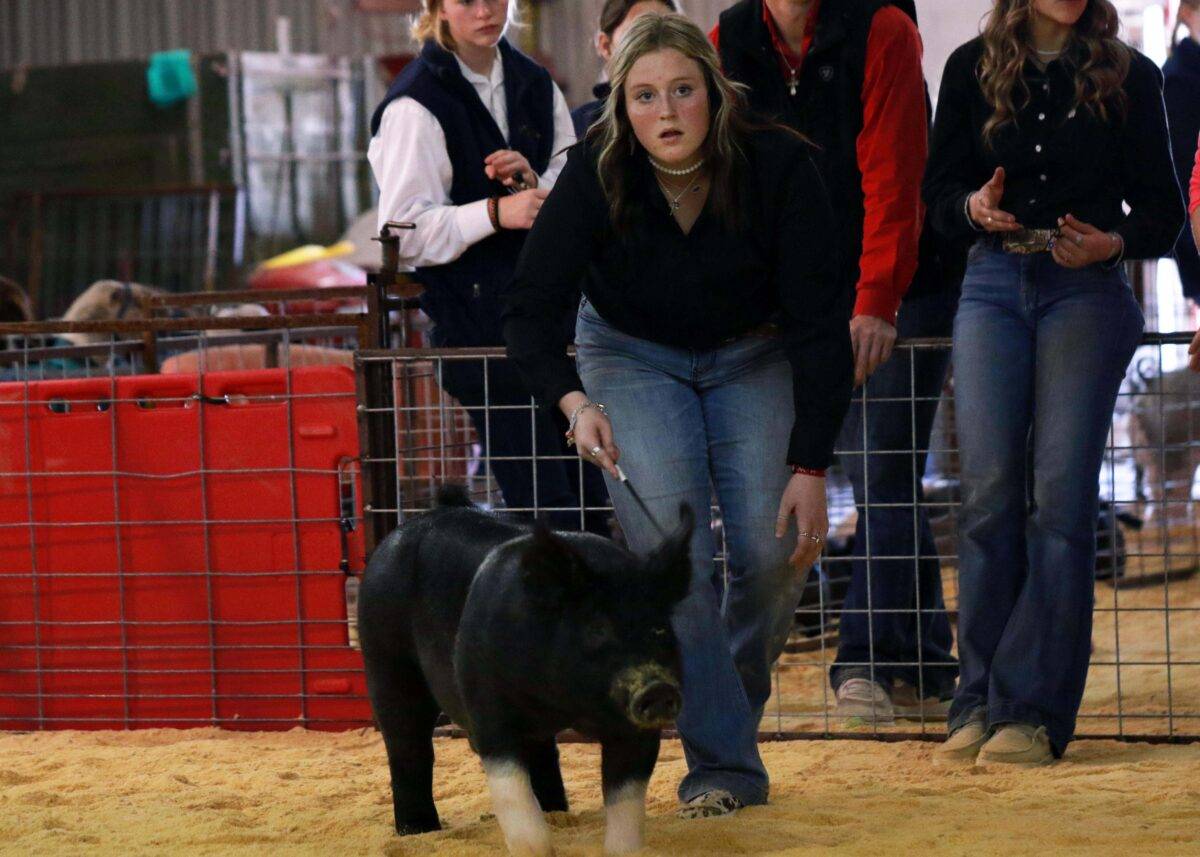
“I get up at 6:30 and we’ll feed him,” Blake said. “During ag class, I go brush him and walk him. Just chill. When I first got him, I had to sit with the pig for a while for him to get used to me. Then I started walking him daily. Just a lot of work goes into it.”
The first FFA chapter at Boys Ranch was chartered in 1955.
That was the same year that Boys Ranch Independent School District was certified through 12th grade.
Since then, hundreds of students like Blake have learned about agriculture through the classroom and through hands-on projects like raising and showing animals.
“Show animals are where we get the most participation from the kids,” said Scotty Wright, agriculture teacher at Boys Ranch High School. “Ag mechanics—we’ve had good success with the kids on that through the years as well.”
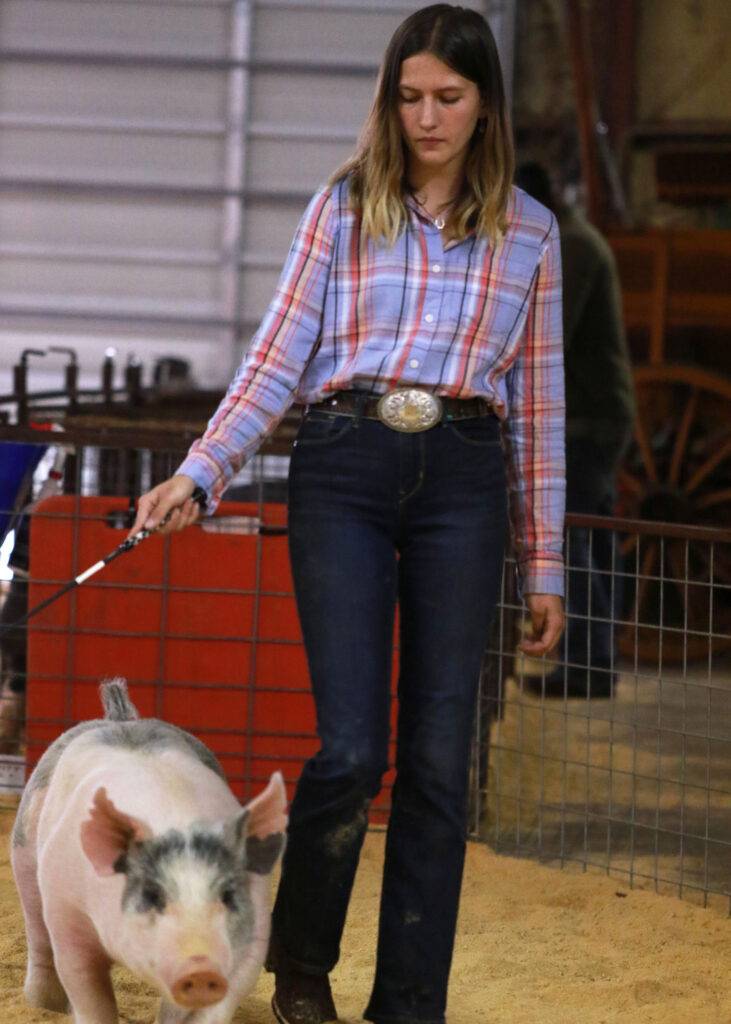
Students Enjoy Their Animal Projects
About half of the students in high school are enrolled in an agriculture class, Wright said. About half of those have animal projects that can be a pig, a lamb or a goat.
Beyond the thrill of having a farm animal of their own, students in the FFA animal project learn important tenets of agriculture and finance.
“What I want them to get out of an animal project is to first of all understand responsibility,” Wright said.
“I think that’s one thing most everybody would think of on having a project,” Wright said. “But I also want them to understand that the food doesn’t just come from the grocery store.”
That’s a lesson that alumnus Larome J., 52, learned.
“When my hog was nice and fat, he went to the livestock shows around Texas,” Larome said. “He was sold, and I made a profit off his weight.
“The lesson for me was farm-to-market. No one really appreciates the farmer even when the food is sitting at the table.
“Most people probably even say grace and do not realize how the food actually got there,” he said.
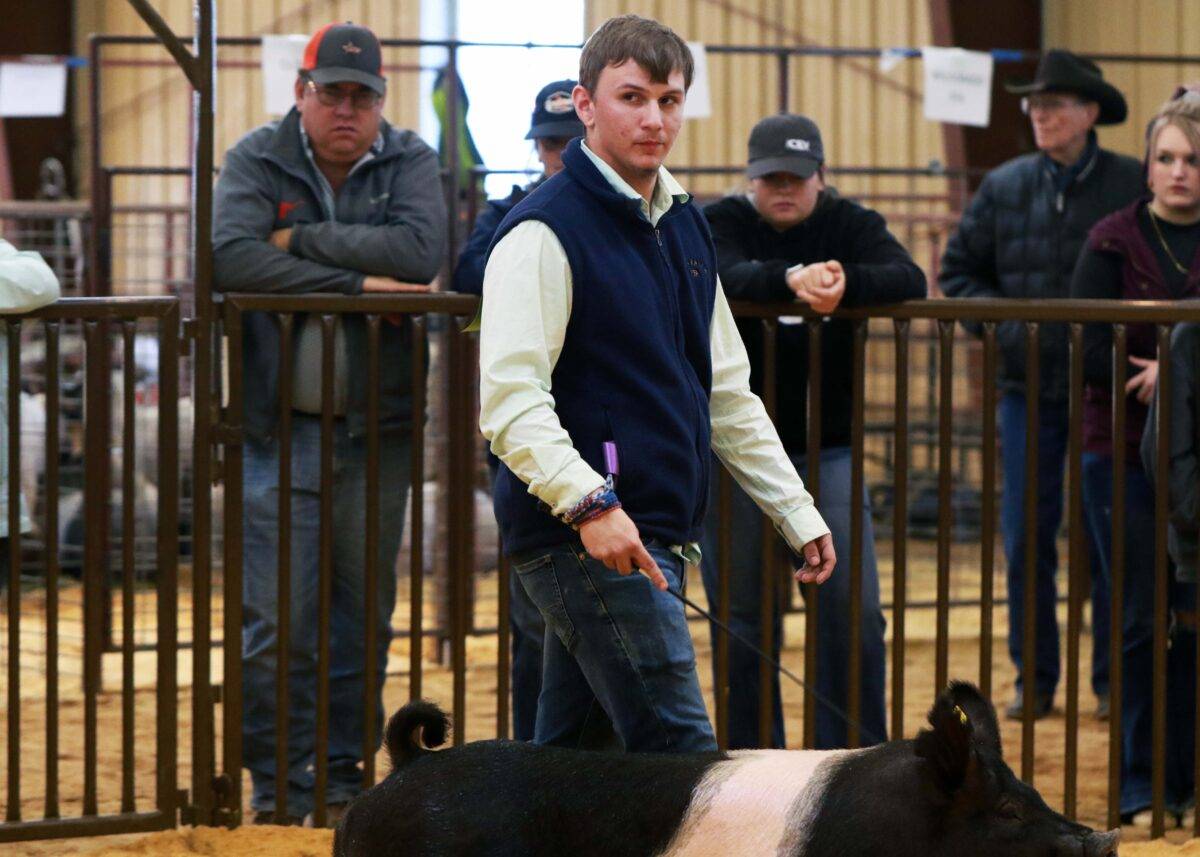
Financing the Animal Projects
Students with animal projects pay $425 for a pig, lamb or goat.
“They can either pay that upfront, or they can do a loan through the Boys Ranch bank, and they pay $100 down,” Wright said. “The bank finances the $325. That includes everything other than insurance. That will include the cost of the animal, their feed, entries for all shows, any vaccinations.
“The students purchase insurance through the bank, which is about another $8. If something were to happen, they can get their money back.”
Alumnus Eugene B. raised two pigs as FFA projects.
About half of the students in high school are enrolled in an agriculture class, Wright said. About half of those have animal projects that can be a pig, a lamb or a goat.
Beyond the thrill of having a farm animal of their own, students in the FFA animal project learn important tenets of agriculture and finance.
“What I want them to get out of an animal project is to first of all understand responsibility,” Wright said.
“I think that’s one thing most everybody would think of on having a project,” Wright said. “But I also want them to understand that the food doesn’t just come from the grocery store.”
That’s a lesson that alumnus Larome J., 52, learned.
“When my hog was nice and fat, he went to the livestock shows around Texas,” Larome said. “He was sold, and I made a profit off his weight.
“The lesson for me was farm-to-market. No one really appreciates the farmer even when the food is sitting at the table.
“Most people probably even say grace and do not realize how the food actually got there,” he said.
Learning Consequences and Taking Big Steps
Failure to clean up after an animal or feed it correctly can lead to warnings. Repeated failures can lead to penalties that range from losing the privilege to go to a major stock show to the loss of the animal.
“It holds their feet to the fire where they have to do what’s asked of them,” Wright said. “Responsibility is the big thing and kids need to learn that: to know that certain things live and breathe, and we have to take care of them.”
Blake financed his pig, a procedure that he found a little intimidating.
“It was my first time getting a loan,” Blake said. “I was a little bit nervous, but it worked. I felt a lot of responsibility.”
The money he made at the Oldham County Stock Show in January 2022 allowed him to pay off the bank loan and put some money in his savings account to prepare for life after he graduates and leaves Boys Ranch.
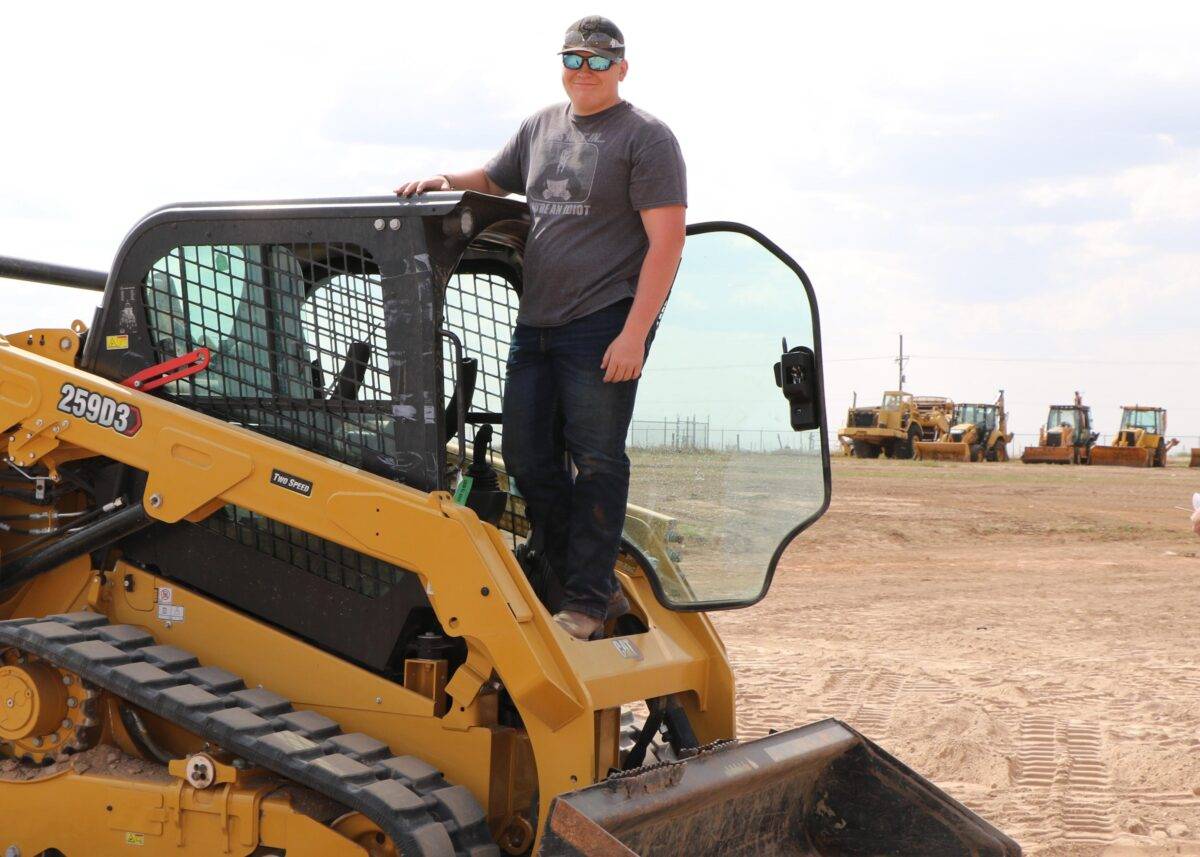
Learning About More Than Farm Animals
FFA isn’t just about animals. The experience shapes them for many career paths.
“Members are future chemists, veterinarians, government officials, entrepreneurs, bankers, international business leaders, teachers and premier professionals in many career fields,” the National FFA Organization says on its website.
For years, Boys Ranch students have gone into the world in all those areas.
“The FFA at Boys Ranch, along with its many educational and work-related programs, was instrumental in me breaking out of my shell and giving me a feeling of purpose, self-worth and belonging,” said Daniel S., age 56. He was in Boys Ranch FFA from 1980 until 1983 and then participated in collegiate FFA.
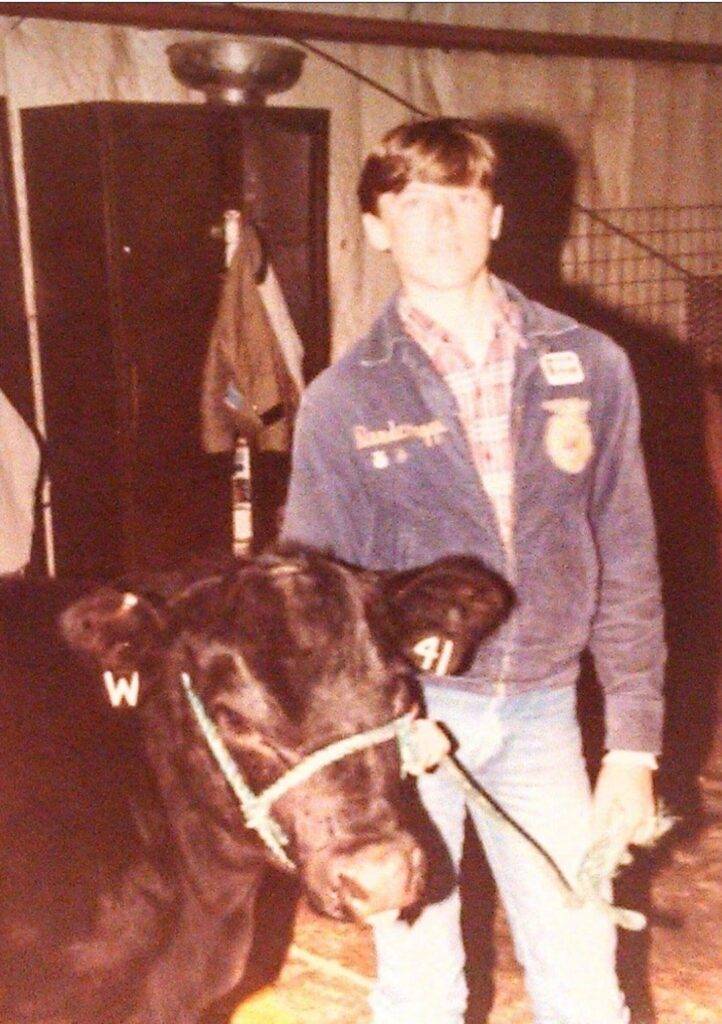
“I took that experience and education from Boys Ranch with me to the California Polytechnic University-SLO and helped to educate other students at local high school FFA chapters,” Daniel said. “That was a wonderful experience.”
Alumnus Frank G. spent four years in FFA and was chapter president his senior year.
“Surprisingly, the door to my life vocation as a missionary and pastor opened up for me on FFA Sunday when I delivered my first sermon,” Frank said. “Also, my FFA teacher at the time, Tom Novak, became a lifelong friend.”
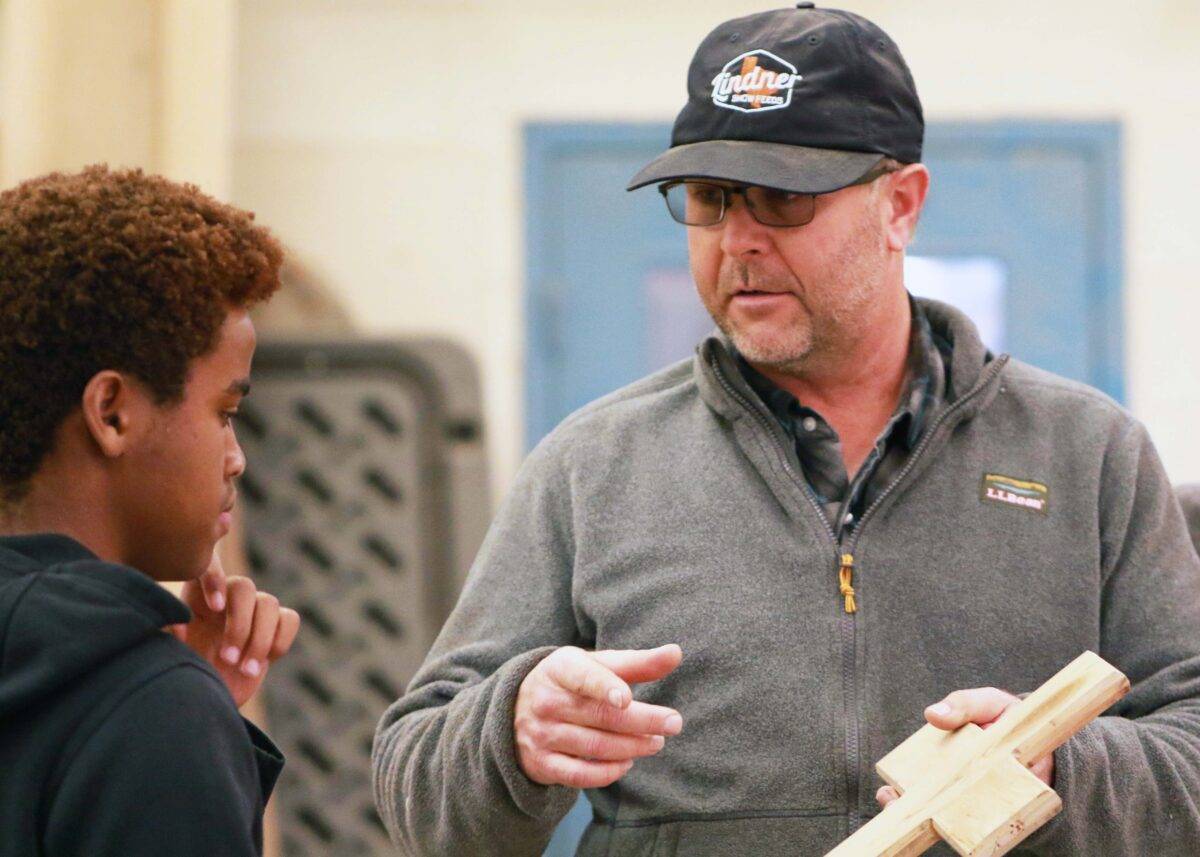
Woodworking, Parliamentary Procedure and More
Through ag mechanics or woodworking, Wright can teach basic life skills, such as measuring or cutting, that some of his students might not have learned before arriving at Boys Ranch.
“In the fall, I have all my freshmen students doing wooden crosses that they get to keep,” Wright said. “That’s their semester project. They get to design and build their own crosses.
“They have to learn to read a tape measure, the different types of wood, then how to put a good finish onto it. It’s pretty basic, but it’s a starting point before we start furniture or other large projects.”
For Blake, learning how to make those crosses as a freshman led to service projects. Since then, he has created beautiful, decorative crosses with plaques that mark special events at Boys Ranch, such as retirements.
“I enjoy building them,” he said. “I’d rather live for Jesus than live for myself.”
Through a Texas Cattle Feeders Association program, Blake and some other junior and senior FFA students across Texas learned to operate dirt movers and skid-steer loaders. The skills are applicable in many industries.
“There’s always a job available (if you can drive a skid-steer),” Wright said.
Students can get jobs upon graduation.
FFA offers students chances to participate in speech contests, to learn parliamentary procedure and to become chapter officers.
Phil A., 66, was part of a parliamentary team that advanced to state competition.
“The experience of thinking on my feet and the training in parliamentary procedure both were great learning tools that I have used through life,” Phil said. “I also participated in livestock judging, farm radio and meat judging. My wife insists that I pick steaks and roasts at the grocery store!”
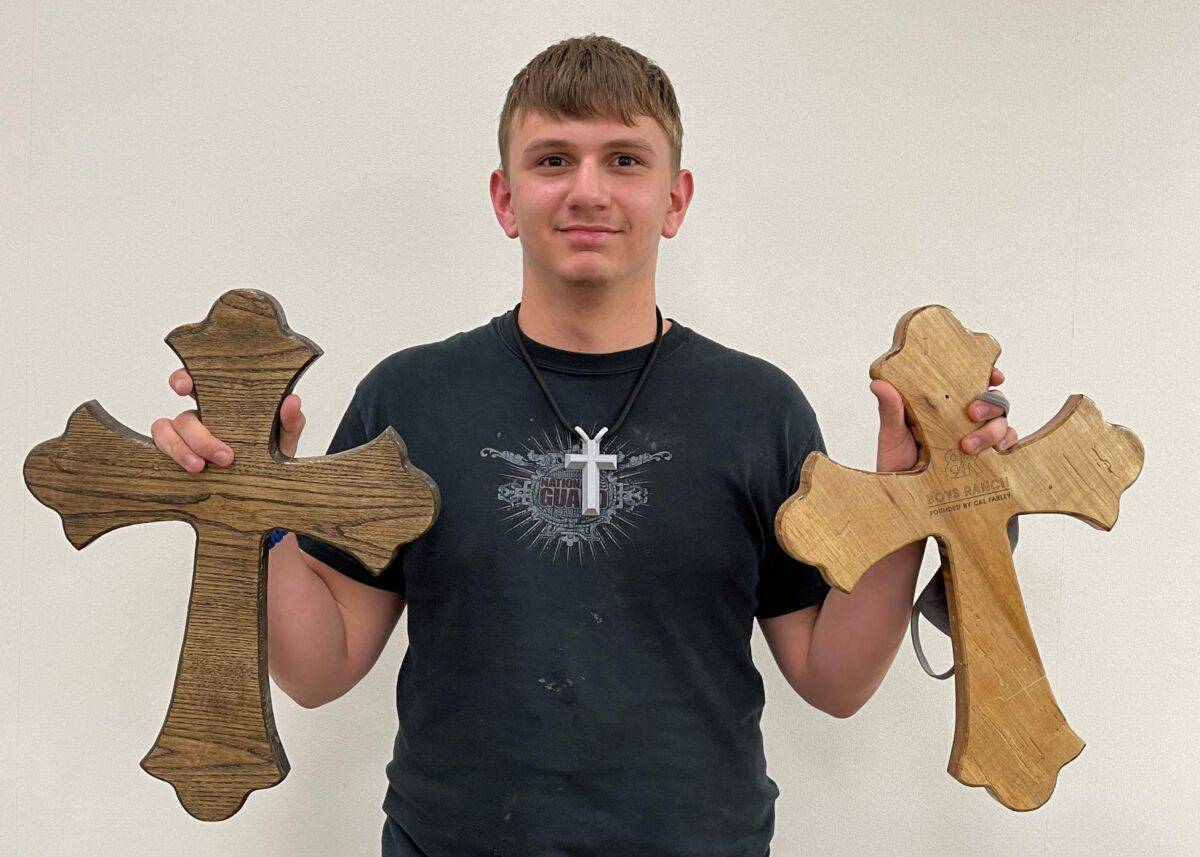
Alumnus Jettley W. found his life’s calling in ag mechanics.
“I absolutely fell in love with welding and fabricating things,” he said. “I’m now the owner of Steele Welding LLC, and I build oil and gas facilities for Highpeak Energy Partners. I contract weld as well. It all ties back to ag/FFA at Boys Ranch.”
Through the years, the FFA program has consistently set students up for success in life.
“There is nothing that the FFA program taught us that we weren’t able to use out
in the real world,” said alumnus Mark M.
“It laid the foundation of who I am today.”
